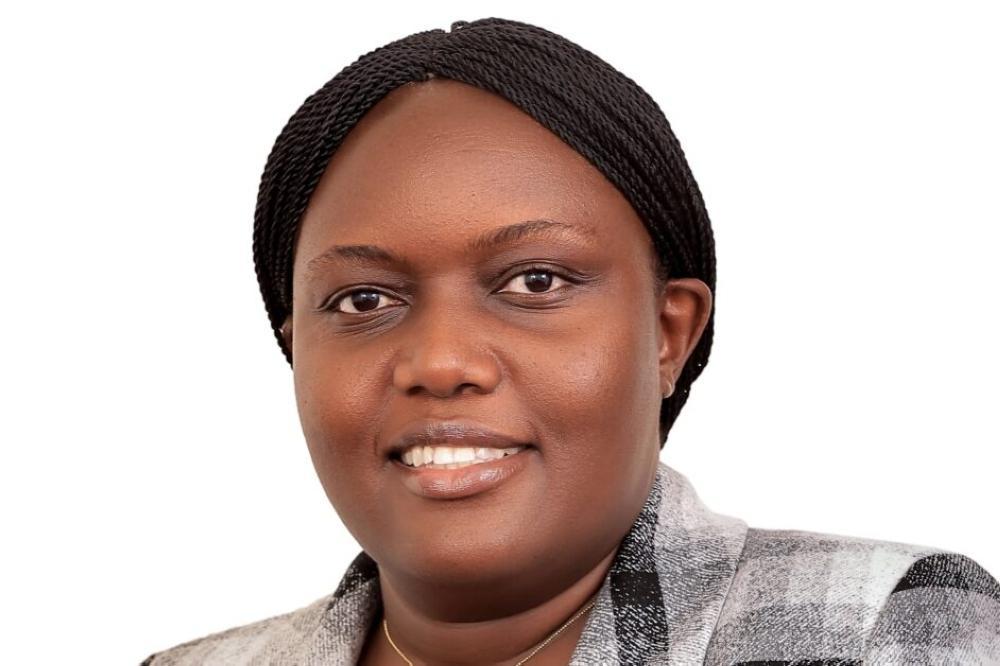Africa-Press – Rwanda. At a time when African institutions are grappling with global economic shifts and digital disruption, internal auditors are increasingly seen as critical to driving institutional sustainability and accountability.
This is according to Ruth Doreen Mutebe, the Chairperson of the African Federation of Institutes of Internal Auditors (AFIIA).
Mutebe, who is in Rwanda for the 11th African Federation of Institutes of Internal Auditors (AFIIA) Conference underway in Kigali, issued a rallying call for internal auditors to lead the charge of accountability in both the public and private sectors.
In an exclusive interview with The New Times, she spoke at length about Africa’s growing internal auditing profession, the prevailing challenges in the sector, and how the Kigali conference aims to address the unique challenges.
The conference also comes amidst the International Internal Audit Awareness Month, marking the first time it is taking place in Rwanda. Organisers said that over 1000 participants from across the continent have convened in Kigali for the summit.
Excerpts,
Take us through the growth of Africa’s internal auditing profession, 16 years later.
The African Federation of Institutes of Internal Auditors (AFIIA) was established in 2009, in Johannesburg, South Africa, by leaders from 11 African countries.
The Federation was created to promote the internal audit profession across Africa and to support the formation and development of national Institutes of Internal Auditors (IIAs).
Today, AFIIA has a presence in 29 African countries and is working with 11 more to establish local institutes.
It is also part of a global structure under the Institute of Internal Auditors (IIA Global), which sets international standards and provides education and research for the profession. Of the over 250,000 IIA members worldwide, approximately 23,000 are in Africa.
What role do internal auditors play in institutions and national development?
Internal auditors support organisations and governments in achieving their objectives by evaluating the effectiveness of governance, risk management, and internal control systems.
They ensure that the structures in place are functioning as intended, promoting accountability, sound financial management, and ethical leadership.
But their work also helps identify and mitigate risks, verify compliance with established policies, and foster organizational integrity.
Importantly, internal auditing is not limited to accounting.
Professionals come from diverse backgrounds, including business and management, making it a multidisciplinary field that adds value across sectors.
For the first time, Rwanda is hosting the 11th AFIIA Conference. What key takeaways should we expect?
This year’s AFIIA Conference is designed to strengthen the technical capacity and strategic influence of internal auditors across Africa.
As professionals who advise institutions, governments, and individuals, auditors must remain well-informed, not only on international standards but also on evolving global and regional contexts.
Key discussions will address ethical leadership, trust-building, and the soft skills required for auditors to effectively engage stakeholders.
We have topics such as artificial intelligence, geopolitical dynamics, accountability, and governance, which will take centre stage, reflecting the current challenges institutions face.
This conference, therefore, provides a critical platform for dialogue, continuous learning, and collaboration across the continent, reflecting this profession’s role in strengthening systems of governance and accountability.
How do you assess the internal auditing profession in Rwanda, both in the public and private sectors?
The internal auditing profession in Rwanda is steadily growing, with noticeable progress in both institutional capacity and sectoral engagement.
Just today, we had the Auditor General and the Minister of Finance talking about collaborations on the continental level. This reflects the profession’s growing recognition and integration into national accountability frameworks.
I would say that this growth is evident across both public and private sectors, positioning Rwanda as a rising example of how internal audit can contribute to institutional governance and transparency.
What key challenges are internal auditors in Rwanda and across the continent facing today?
Internal auditors in Rwanda and across Africa continue to face several systemic and perception-related challenges.
A primary issue is the widespread misunderstanding of the profession’s role. Internal auditors are often seen as fault-finders rather than strategic partners who help organisations identify weaknesses and improve systems to achieve their objectives.
There is also a persistent misconception that internal auditing is limited to finance, despite the profession requiring a diverse range of expertise depending on the organisational context.
According to international standards, audit teams should collectively possess the skills necessary to offer comprehensive and effective advisory support.
Also problematic is the resistance to oversight, commonly referred to as pushback. This is another significant obstacle.
We have realised that in some instances, organisations or individuals deliberately avoid scrutiny, undermining audit efforts.
This is sometimes coupled with the deliberate under-resourcing of internal audit functions, limiting their ability to operate effectively.
What are the key changes introduced in the revised global internal audit standards?
The updated global internal audit standards bring greater clarity and structure to the role of internal auditors, particularly chief audit executives.
For instance, a major shift in the new standards is the explicit assignment of responsibility to governance bodies, such as boards, audit committees, and governing councils, to ensure that internal audit functions are staffed with qualified professionals.
Governance bodies are now also expected to ensure internal audit teams are adequately resourced, possess the right mix of skills, and are evaluated regularly based on performance.
This addresses long-standing challenges in the profession related to under-resourcing and limited institutional support.
But the new standards also introduced what we call “topical requirements,” enabling our profession to respond more effectively to emerging issues such as artificial intelligence and cybersecurity.
These additions allow the Global Institute to issue timely guidance on how auditors should approach new risks.
Parting shot
What we are looking forward to from our Rwanda conference is that the value of internal auditing is strengthening, but at the same time equipping professionals to respond to today’s fast-evolving risk landscape.
For More News And Analysis About Rwanda Follow Africa-Press






